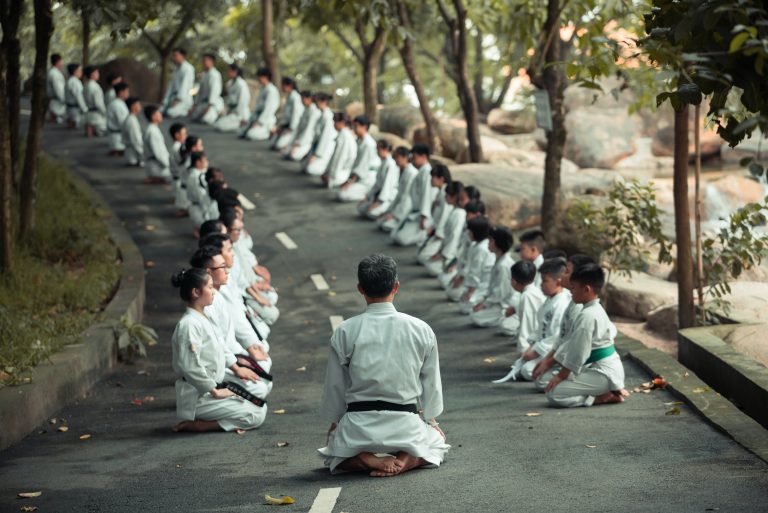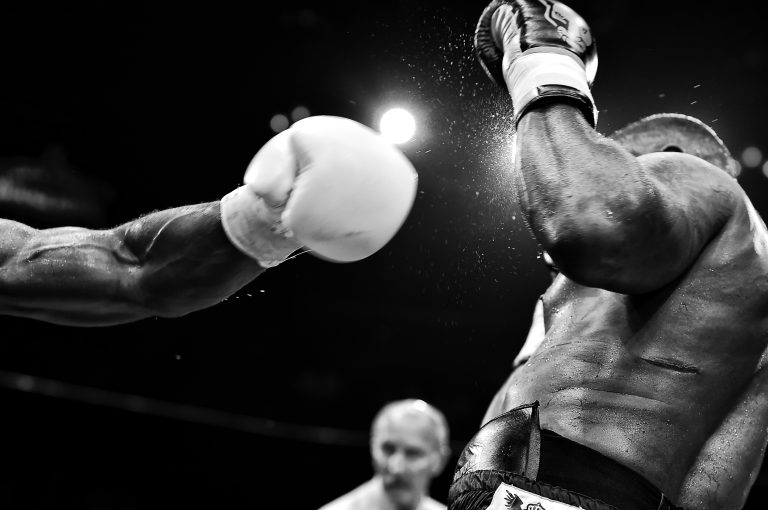Learning karate: The best ways to become a karate master
Karate is not just a form of martial art, but it is also a way of life. It helps in developing mental, physical and emotional balance, and it also teaches discipline, focus, and perseverance. So, if you are planning to learn Karate, then you are on the right track.
Here are some of the best ways to become a Karate master.
Find a Good Trainer
The first step to becoming a Karate master is to find a good Karate trainer. A good trainer will not only teach you the techniques and forms but also help you develop discipline, focus, and patience. Look for a certified Karate instructor who has a good reputation in the Karate community.
Practice Regularly
Practice makes perfect. To become a Karate master, you need to practice regularly. Make a schedule and stick to it. Even if you are not able to go to the dojo regularly, practice at home. Practice will help you perfect your techniques, improve your agility and coordination, and help you develop focus and discipline.
Learn the Basics
Karate is all about the basics. To become a Karate master, you need to be proficient in the basic techniques and forms. Spend time mastering the basic stances, punches, and kicks before moving to the advanced techniques.
Set Goals
Setting goals is essential for progress. Set both short-term and long-term goals for yourself. Short-term goals could be learning a new technique, practicing every day for a week, or improving your speed. Long-term goals could be achieving a black belt or mastering an advanced technique.
Watch and Learn
Watching and learning from other Karate practitioners is an excellent way to improve your skills. Watch instructional videos, attend Karate classes, watch Karate tournaments, and learn from other Karate masters. This will help you learn new techniques, improve your form, and also help you stay motivated.
Be Patient
Becoming a Karate master takes time, effort, and patience. It is essential to remember that progress is not always linear, and there may be times when you feel like you are not making progress. Stay committed and be patient. With time and practice, you will become a Karate master.
In conclusion, becoming a Karate master is not an easy task, but with the right mindset, dedication, and hard work, it is achievable. Find a good trainer, practice regularly, learn the basics, set goals, watch and learn, and be patient. Remember that Karate is not just a form of martial art, but it is also a way of life.
Learning karate: The best ways to become a karate master
Karate is one of the most popular martial arts in the world. It is a great way to build discipline, strength, agility, and self-defense skills. Whether you are a beginner or an experienced student, there are always ways to improve your skills and reach your full potential. In this post, we will answer some of the most frequently asked questions about learning karate and becoming a karate master.
What is karate?
Karate is a martial art developed in Okinawa, Japan, in the late 19th century. It involves a combination of strikes, kicks, blocks, and throws. Karate is not just about self-defense; it also emphasizes mental and physical training, building character, and developing a sense of responsibility.
What are the benefits of learning karate?
Learning karate has many physical, mental, and social benefits. Here are just a few:
- Improves overall fitness and well-being.
- Builds self-confidence, discipline, and focus.
- Teaches practical self-defense skills.
- Develops respect for oneself and others.
- Offers an opportunity to make new friends and be part of a community.
Can anyone learn karate?
Yes! Karate is suitable for people of all ages and fitness levels. Whether you are a child, an adult, or a senior citizen, there is no age limit to start learning karate. However, it is essential to consult with a doctor before starting any martial arts training, especially if you have any pre-existing medical conditions.
What are the different styles of karate?
There are many styles of karate, each with its own emphasis and techniques. Some of the most popular styles of karate include:
- Shotokan: emphasizes physical conditioning, strength, and mobility.
- Goju-ryu: focuses on breathing and internal energy, and incorporates circular movements for power.
- Shito-ryu: combines elements of various martial arts, including karate, judo, and kendo.
- Wado-ryu: emphasizes evasion and redirection of an opponent’s attack, rather than direct confrontation.
How often should I train karate?
The frequency of your karate training will depend on your goals and schedule. However, it is recommended to train at least two to three times a week to see progress and maintain consistency. Of course, the more you train, the faster you will progress.
What should I expect in a karate class?
Most karate classes begin with a warm-up session, including stretching, cardio exercises, and muscle conditioning. After that, you will typically practice various techniques such as punches, kicks, blocks, and strikes, alone or with a partner. The instructor will provide guidance and correction, and the class may also include sparring or kata practice (choreographed sequences of movements). Finally, there will be a cool-down session and time for questions and feedback.
What equipment do I need for karate training?
The equipment you need for karate training may vary depending on the style and level of training. However, some of the essential equipment includes:
- Karate uniform (gi)
- Belt (to indicate rank)
- Mouthguard (for sparring)
- Handwraps (for striking and preventing injuries)
- Shin and instep guards (for sparring)
- Gloves (for sparring)
How can I progress to higher belts in karate?
In most karate styles, there is a ranking system based on a colored belt system. Beginners usually start with a white belt and progress to higher ranks as they gain experience and proficiency. The requirements for advancing to higher belts may vary from style to style, but generally, they involve demonstrating proficiency in various techniques, kata, and sparring.
Can I learn karate online?
While in-person training is always preferred, it is possible to learn karate online or through instructional videos. However, online training cannot replace the benefits of in-person interaction with an experienced instructor and training partners. Moreover, it can be challenging to receive feedback on your technique and progress when learning karate online.
What else should I keep in mind when learning karate?
Learning karate is a long-term endeavor that requires patience, dedication, and hard work. It is essential to set realistic goals, practice regularly, and be open to feedback and correction. Additionally, it is crucial to follow the principles of karate, including respect, humility, and self-control, both inside and outside the dojo.
In conclusion, learning karate can be a rewarding and life-changing experience. By following the tips and advice in this post, you can become a karate master and reap the physical, mental, and social benefits that come with it. Remember always to stay humble, respectful, and disciplined, and enjoy the journey!
Inhaltsverzeichnis





